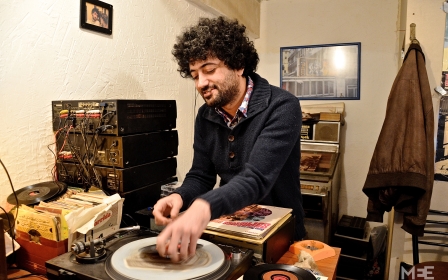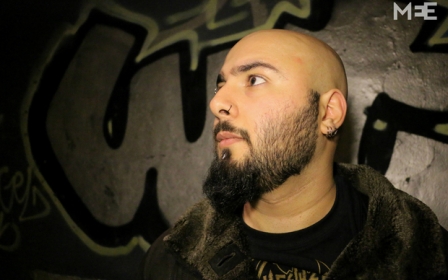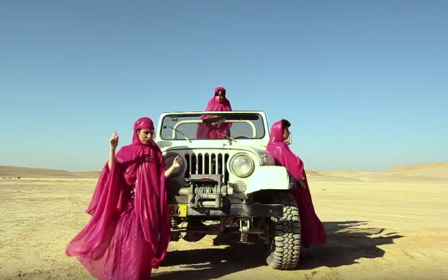VIDEO: Meet the Palestinian rapper using sounds of occupation to fight Israel

Watch the interview with Muqata'a here:
I first met Muqata’a, which translates to boycott in English, in the West Bank city of Ramallah 12 years ago. He was just starting out in his musical career in the group Ramallah Underground with his brother and producer Aswatt and close friend and rapper Stormtrap.
Ramallah Underground were part of the first wave of Palestinian hip hop groups to emerge in the early-to-mid 2000s. The group went on to inspire a whole new generation of hip hop artists.
Ramallah Underground later split and Muqata’a embarked on a solo career, releasing his debut album ‘Hayawan Nateq’ in 2013.
I caught up with Muqata’a in East London, where he was performing, to talk about the “direct influence” of the Israeli occupation on his creative process, and the inspiration behind his sounds.
Muqatt’a often records the sound of the city around him, the checkpoints and protests, incorporating them into his work. “There’s a sound at the checkpoint, there’s a sound in the city. When you hear that the Israeli army is about to raid the city. There’s this general sense and it creates a sound that you can feel.”
“We respond with sound because they also attack with sound. Sound meaning psychological warfare. When they go faster than the speed of sound with their F-16s... that creates a very huge sound which is a sonic boom and it sounds like they actually bombed, that creates a psychological effect, we don’t know where they bombed. My sound is also a response to that. That’s the reason why I make harsh sounds and I distort my sound and my sounds are very glitchy and very noisy.”
The internet has been vital to his work. Whereas most artists need the internet to connect to other artists and audiences around the world, in occupied Palestine the internet is vital to connect even on a local level. With no freedom of movement, concrete walls and numerous checkpoints, the on-line music scene is what is helping artists to connect to other artists and fans.
I asked him how things have changed, 12 years on, for Palestinians in the West Bank and Gaza. What does he think of the current state of the Palestinian leadership? And considering his name means boycott: what does he think of BDS? Click on the video to find out more.
New MEE newsletter: Jerusalem Dispatch
Sign up to get the latest insights and analysis on Israel-Palestine, alongside Turkey Unpacked and other MEE newsletters
Middle East Eye delivers independent and unrivalled coverage and analysis of the Middle East, North Africa and beyond. To learn more about republishing this content and the associated fees, please fill out this form. More about MEE can be found here.




